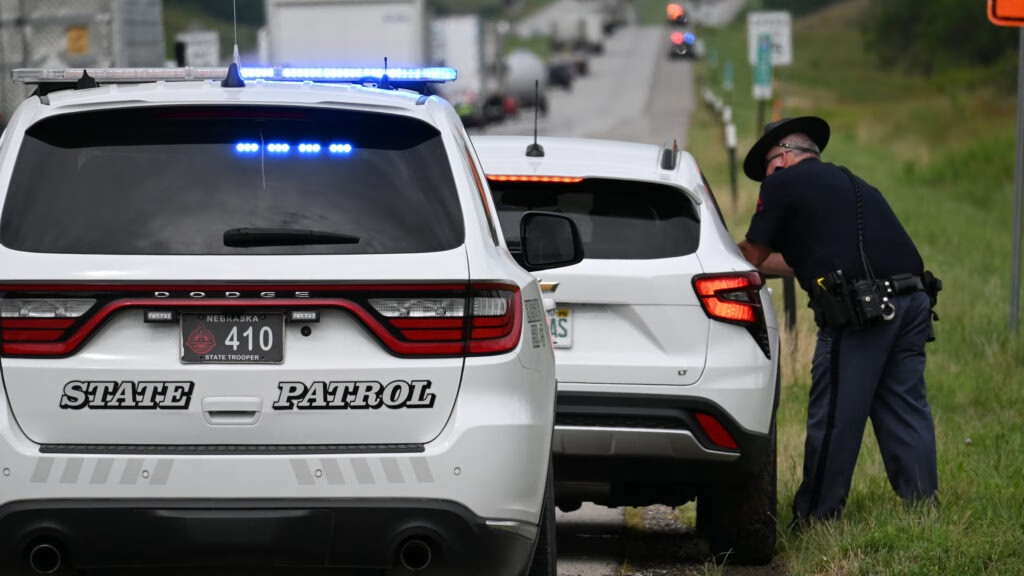What Nebraska’s New Move-Over Law Means for Every Driver
Who needs to move over now, and why is this law changing?
If you drive in Nebraska, you’re about to notice a big shift in roadside etiquette—and it’s not just about flashing lights anymore. As of September 3, the state’s move-over law isn’t limited to emergency vehicles. Now, it covers every stopped car, pedestrian, and even cyclists or tractors parked on the shoulder. That means if you see anyone pulled over, you’re expected to slow down and, when possible, move over a lane.
Why the change? According to Lt. Jeremy Thorson of the Nebraska State Patrol, too many close calls—and real tragedies—have happened when drivers failed to give space to people stranded or working on the roadside. The heartbreaking death of Trooper Kyle McAcy earlier this year was a tipping point. Nebraska’s not alone here; every state has some version of this law, but Nebraska’s expansion is among the most sweeping. It’s about protecting everyone, not just first responders.
How do the new speeding fines stack up?
Let’s talk money. For the first time in decades, Nebraska’s speeding fines just got a major overhaul. And by “overhaul,” we’re talking up to 400 percent higher than before. Here’s the new breakdown:
– 1–5 mph over: $50 (was $10)
– 6–10 mph over: $75 (was $25)
– 11–15 mph over: $125 (was $75)
– 16–20 mph over: $200 (was $125)
– 21–35 mph over: $300 (was $200)
– 36+ mph over: $400 (was $300)
If you’re used to treating a 5 mph-over ticket as a slap on the wrist, think again. Even the smallest infraction now comes with a price tag that’ll sting. And if you’re caught doing 36 mph or more over the limit, you could be out $400—enough to ruin anyone’s weekend plans.
What counts as reckless driving under the new rules?
Here’s where things get even more serious. Nebraska law now says if you’re caught driving at more than twice the posted speed limit, you’re not just getting a bigger ticket. You could be charged with reckless driving. That’s a criminal offense, not just a traffic violation.
Douglas County Sheriff Aaron Hanson put it bluntly: “It’s been frustrating for a long time to only be able to charge someone driving double the limit with a ticket. That is not commensurate to the offense itself.” In other words, if you’re flying down a 60 mph highway at 121 mph, you’re not just risking your own life—you’re risking jail time.
Why are these changes happening now?
The numbers tell the story. In just the first half of 2025, Nebraska State Patrol cited 840 drivers for going over 100 mph. That’s not a typo. And it’s not just Nebraska—across the country, speeding and reckless driving have surged since the pandemic, according to National Highway Traffic Safety Administration data. States are responding with tougher laws and stiffer penalties to try to reverse the trend.
Nebraska’s also taking a harder line on motor vehicle homicide, bumping it to a Class IV felony. The Department of Transportation now has more power to temporarily lower speed limits in construction zones or during hazardous conditions, with new signs and policies rolling out soon.
What should you actually do if you see someone stopped on the road?
Let’s make this practical. If you spot a car, a pedestrian, or even a tractor on the shoulder, here’s what the law expects:
1. Slow down significantly as you approach.
2. Move over one lane, if it’s safe to do so.
3. If you can’t move over, reduce your speed even more and pass with caution.
It doesn’t matter if it’s a police cruiser, a family changing a tire, or a cyclist catching their breath. The rule’s the same. And if you’re the one stopped, keep as far from traffic as possible and turn on your hazard lights. Every bit of visibility helps.
How are law enforcement and officials responding?
Law enforcement is making it clear: these aren’t just warnings. Vicki Kramer, Director of the Nebraska Department of Transportation, summed it up: “Highway safety ultimately depends on each of us making the right choices every time we get behind the wheel.” Patrols are ramping up, and officers are watching for violations—especially in the first few months of the new law.
Social media posts from the Nebraska State Patrol show troopers already writing tickets for drivers clocked at 100 mph in 70 mph zones. The message? No more free passes.
What’s the real impact for Nebraska drivers and visitors?
For Nebraskans, this isn’t just about avoiding a ticket. It’s about a cultural shift—treating every roadside stop as a potential life-or-death situation. For visitors, it’s a heads-up: Nebraska’s not messing around. Whether you’re passing through on I-80 or taking a back road to see the Sandhills, the rules are the same.
The big takeaway? Safer roads aren’t about perfection—it’s about smarter adjustments. Start with one change this week—maybe it’s checking your speed more often or giving a little extra space to that car on the shoulder—and you’ll likely spot the difference by month’s end.

